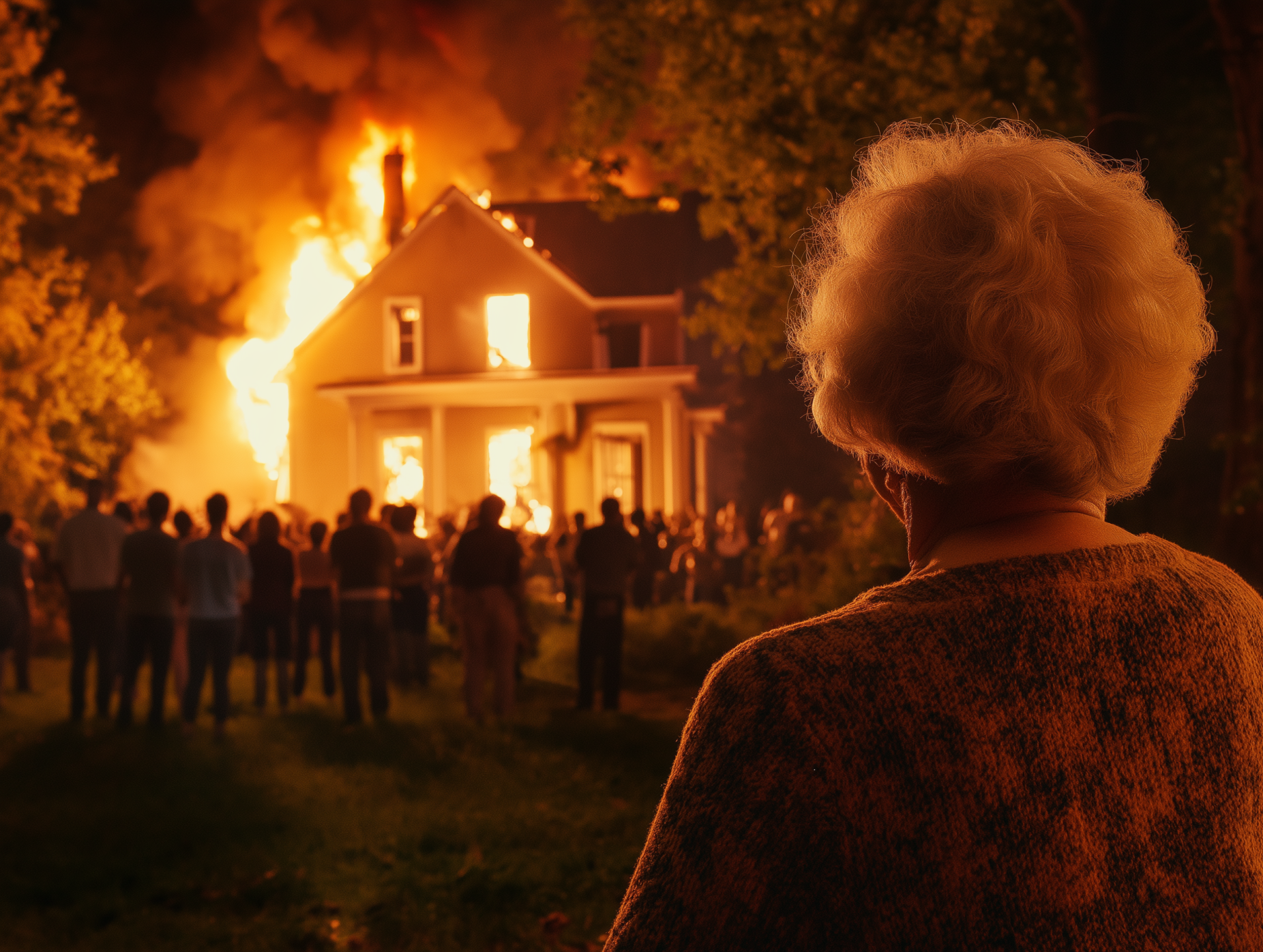Magnolia Wren had seen it all. She saw the brats from middle school across the road daily. The teenagers tore through the streets like mini hurricanes on their bikes—laughing and swearing loudly, spraying their energy drinks onto carefully tended hedges.
They mocked the mailman, rang doorbells at midnight, and hurled cuss words freely, because they thought it cool. They often crushed petals, throwing used soda cans into her rose bushes, stomped through her garden at night, and took peaches from her tree without asking. Even the kindest neighbors felt trapped in a never-ending circus.
She bore it all, even when they took her late husband’s wind chimes and broke them, left oil spills in her birdbath, pulled up garden stakes into twisted shapes, and played ball near her home—shattering her window. But when she saw them ragging a little boy…Magnolia’s hands could no longer remain still!
In the quiet cul-de-sac, life used to be peaceful. Families tended lawns, children rode bicycles, and the loudest sound was the distant bark of a dog. That peace was shattered in the summer, when a pack of teenagers, newly graduated from middle school, wild and restless, decided to make the place their play arena.

When homeowners chased away the boys or shouted, the kids only came back later, when no one was about. Folks complained to the principal of the school where they studied. But nothing stuck. The boys grinned and were up to the same antics iin no time.
With Magnolia, it started small: a thrown soda can into her rose bushes, laughter echoing as petals crumpled. Then came louder taunts—“Hey, grandma, shall we mow your lawn?” Jokes escalated to stomping across her garden at night, crushing a row of tulips she’d nurtured for years. Each act left even her neighbors seething on her behalf.

Though they tried Magnolia’s patience, she took it in her stride. She wrote letters to the school in tidy cursive, offered the boys cupcakes she baked for the annual fair, and even learned two of their names—Trevor and Malik. In return, they made fun of her old shapeless gardening hat and called her rude names.
The boys called her “Mag” or “Mags” and pretended to curtsy. They took peaches from her tree while she was inside washing jars. Many a time, rinds landed on her welcome mat like slurpy slaps. Magnolia set her jar down, and cleaned up the mat, seemingly undisturbed.

That she never yelled back was the strangest part of it. She simply watched with her quiet blue eyes, neither threatening nor shouting. She acted like nothing could ruffle her. Perhaps that silence infuriated or threatened them the most.
“Why doesn’t she tell them off?” whispered Mrs. Phelps from next door. “I’d call their parents and give them hell.” But old Mag kept watering her flowers, and humming under her breath. The abundance of her good nature was unfathomable. It was as if she were entirely blind to what they were doing.

And this stole the zing of their actions somewhat. Whenever they saw her, they acted extra boisterously. To them, it seemed she was ignoring their actions. But while she hummed, smiled, and offered kind words, her sharp eyes missed nothing.
The ringleader, she understood, was Connor, who strutted with calculated arrogance. He was always the first to mock. His sidekick, Malik, loved following the leader. Together, with the others, they played loudly, roughly, and brought disaster to people and things around them.
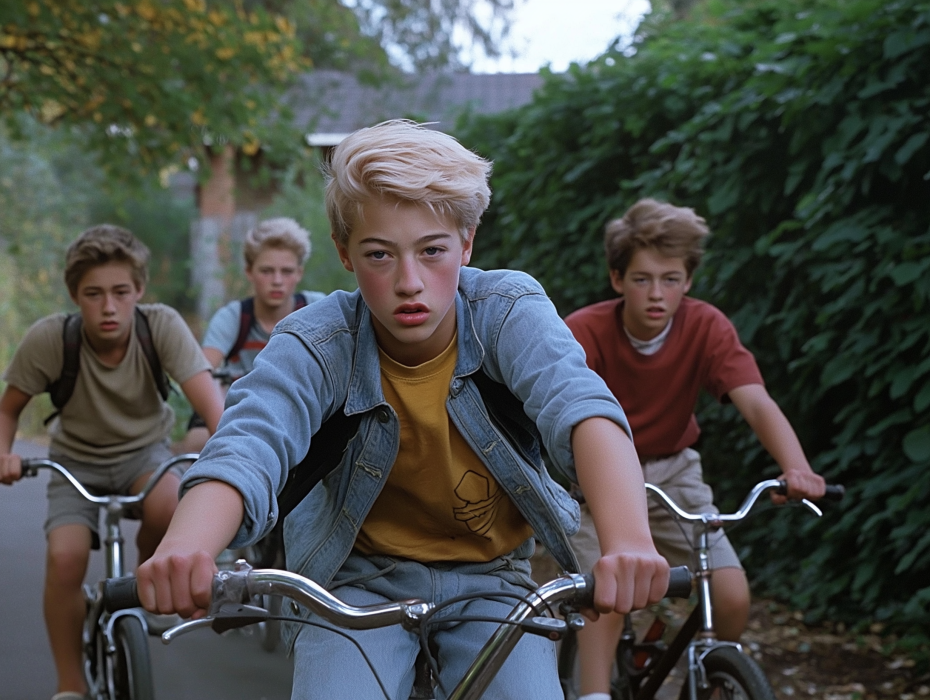
Sometimes, they went a bit overboard. They yanked up garden stakes and filmed cheap pranks for hollow laughs online. They thought youth gave them immunity, that the world owed them laughter at someone else’s expense. They didn’t fully understand, or care about, the concept of karma.
She, meanwhile, watched them closely. She kept track of their routes—in which alley they raced downhill, and which of them said what to whom. She saw they bragged most when a camera was on, and that the seemingly bravest boy blinked too much when he lied. Information seasoned her patience.
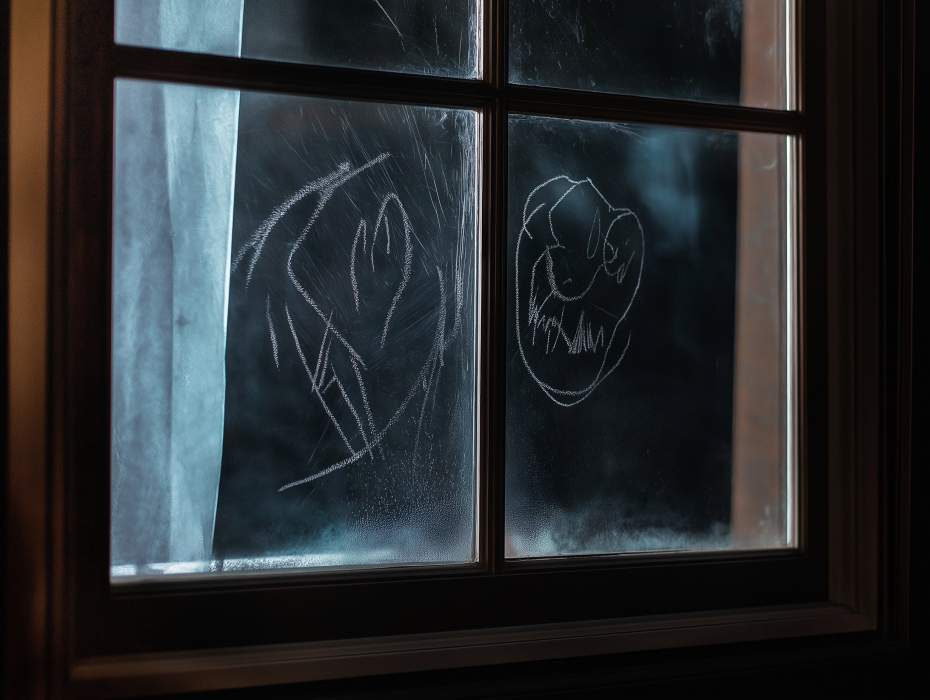
On an evening, they chalked an obscene picture across her front window and left an old, dead battery in her birdbath, oily rainbow spreading in it like a bad mood. She wiped her glass in circles, slow and silent. When a neighbor offered sympathy, Magnolia just said, “Mmm,” the way a kettle murmurs before boiling.
Weeks dragged by. The school authorities, and occasionally the police, were called several times, but since nobody had ever caught them doing the mischief, there wasn’t much that could be done. Parents either made excuses or shrugged helplessly; the boys spun lies with swift tongues. Ravaged gardens became the new norm.

One night, the boys took the wind chimes adorning Magnolia’s porch—the one that her late husband had given her. She found the broken pieces scattered on her walkway at sunrise. She clenched them in her palm. To an onlooker, she might’ve looked pitiful, but the more discerning might’ve caught the resolve in her eyes.
Another time, they played ball too close to her building and broke one of the panes of the lower windows. It was an accident, but their lack of remorse and good cheer grated on the nerves of everyone. It wasn’t that they always set out to make mischief, but it seemed trouble followed wherever they went.
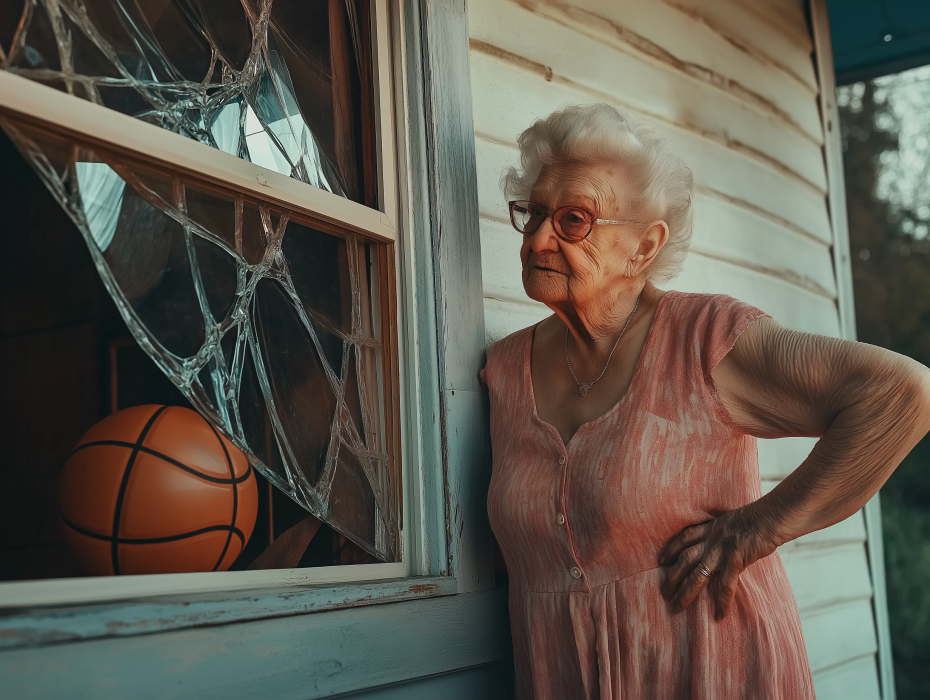
Instead of scolding or calling anyone, she tidied her porch, swept away the rubble, and brewed a pot of tea. Then she sharpened pencils at her kitchen table and opened a notebook. A slight smile might’ve curled at the corners of her lips—but maybe that was only a trick of the light, who knew.
She continued to shuffle about in her floral aprons and silver hair piled into tidy buns. Whenever neighbors saw her, she smiled, waved, and chuckled about her arthritic aches. From afar, the boys watched her warily and perhaps felt a little ashamed, even. But Grandma never let on about her pain or disappointment.

The shame wore off soon enough, though. They grew bolder, playing ball along the block, running across properties, and sitting on the fences without permission. “What’ll she do?” one sneered. “She’s too old to fight back.” They laughed, emboldened by assumed weakness.
On the other side, in her diary, modestly disguised as a battered housekeeping notebook, Magnolia wrote meticulous notes. She noted times, dates, and even descriptions of sneaker prints left in her garden and porch. Those blue eyes were X-ray-like in their precision.

A less patient neighbor might have exploded with anger long ago, but she quietly accumulated details like puzzle pieces. She was gathering ingredients for her special once-in-a-lifetime recipe. Her pen scratched late into the night.
One afternoon, the mats she had cleaned and left out to dry, were thrown carelessly into the garden puddle. Magnolia bent down with delicate hands, scooping them up. She glanced across the street and saw two boys running about. She smiled brightly, calling, “Thank you kindly, dears, for not stepping on my roses.” They stopped and frowned, confused.

Magnolia had always been a good baker. She baked cakes and bread often. At neighborhood potlucks, her pies disappeared first. Children who had visited her remembered three things about her: the smell of cinnamon drifting across the fence, the way she pinched your cheek when you visited, and her warm smile.
It seemed that she was baking nowadays with renewed vigor, humming old hymns. She left her kitchen window wide open, and a passerby would be greeted with the wafting aroma. Cinnamon, vanilla, and chocolate drifted through the air. On the counter, she kept one cooling tray carelessly near the sill, visible from the sidewalk.

Magnolia knew human temptation always won in the end. Though the boys drifted past, smirking as if disinterested, she sensed their eyes followed her trays of brownies, loaves of bread, and apple pies cooling in the afternoon sun. If Magnolia was satisfied, she hid it well.
At church and at the market where she distributed her delicacies, she was always humble. “Oh, those rascals keep me on my toes,” she’d chuckle, telling sympathetic neighbors. “I suppose it’s just the way of youth. Oh well, it’s just the garden though. Good exercise for me to keep it well tended.”

If Magnolia hoped her good humor would shame them, the teens mistook her silence for license. When they left open and empty snack packets across her yard, she sighed and picked them up herself. Neighbors shook their heads at her gentleness, some marveling at and others ridiculing her brand of kindness.
But Magnolia noticed changes in the boys’ behavior, too. They began lingering by her fence after school, sniffing the scents of her bakes. One even asked, mockingly, “Baking another pie?” She chuckled, one hand patting the tray. “Oh yes, this one’s for the Sunday class,” she said without looking up.
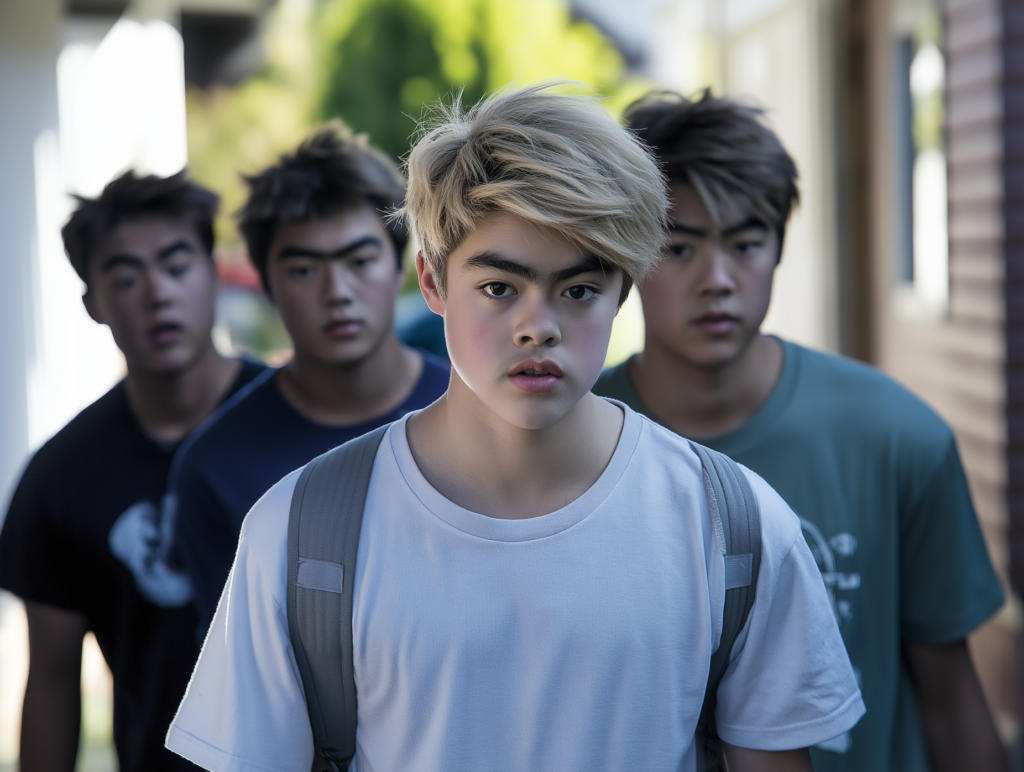
The boys did not have to play detectives about her life; they had no lack of clues. A handwritten recipe card was left half-tucked under a flowerpot. A cooling rack set just slightly out the window, within eye line. She sometimes left her gate unlocked at dusk, creaking wide. They imagined she was getting a bit forgetful with age.
Each evening, Magnolia lit one lamp in her parlor and sat knitting. To those who saw her from the window, she appeared vulnerable and fragile. In fact, they thought she was too weak-eyed to notice them creeping closer. Knitting needles clacked rhythmically, while her eyes occasionally lifted toward her notebook lying open on the table beside a steaming teacup.

Her routine was predictable too—meals, knitting, and early bed. The boys whispered among themselves, debating what treasures might lie unguarded indoors. Their laughter edged with tension. Some of them, it’s true, were uneasy. They did not like the idea of breaking into a home.
When neighbors stopped by, she was always gracious. When asked outright, she would say, sweetly, wringing her hands, “I do worry about mischief, but I’m only one old woman.” “Thankfully, I’ve learned to keep busy. Perhaps they will learn from my industry, too.” Her tone trembled with innocence, masking any other intent.

Soon, the vandalism grew even more. Every Friday, maybe marking the weekend, the boys staged something bigger: chalk drawings on the wooden floors and walls of houses, or garbage bins toppled into the middle of streets. Neighbors whispered, “These boys are a menace.” Still, Magnolia tended her roses and plucked mint placidly as if nothing could alter her rhythm.
Rainy evenings saw them stomping mud tracks across her porch. Connor leaned close to her screen door once, whispering a string of profanities. His friends roared with laughter. Magnolia appeared at the door then, holding a steaming mug of tea, smiling gently. He stumbled back, startled, though he masked it with a grin.
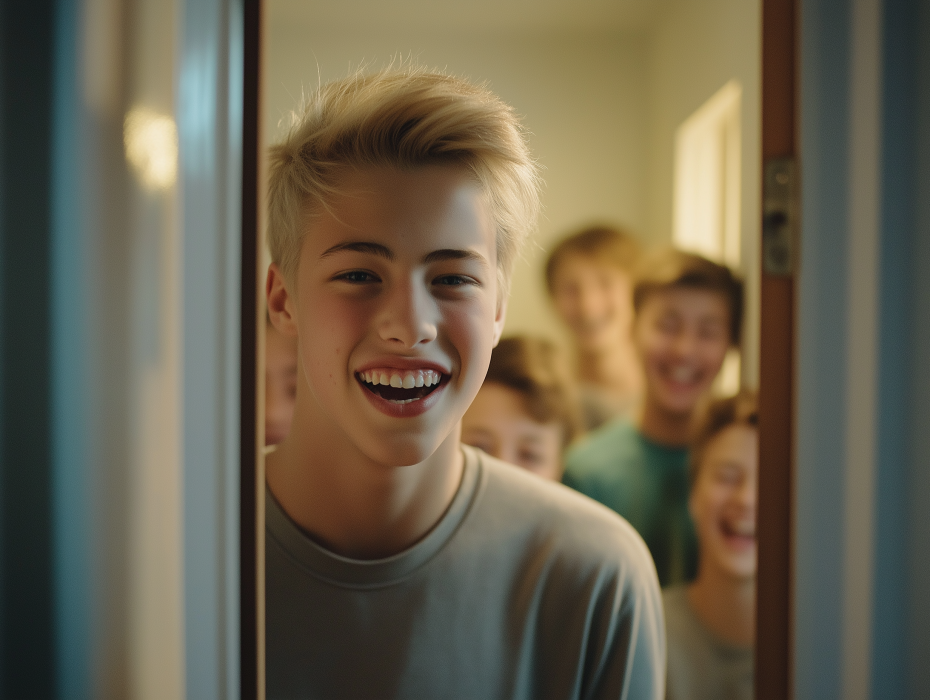
Sometimes they hurled rocks through neighbors’ garden gnomes or drove bicycles into hedges. At other times, they left dead insects in mailboxes, mocking squeals when homeowners discovered the remains. Their pranks never seemed to stop. Only Magnolia kept acknowledging them politely, “Lovely evening, boys,” as though greeting altar boys, and not the hooligans they were.
One morning, Magnolia woke to the wail of sirens, a chill settling in her bones. Flashing red light painted her bedroom ceiling, strobing in broken rhythm. She slipped from bed, robe wrapped tight, and hurried to the porch. Down the street, smoke billowed ominously from a house that had been empty and on sale for years.
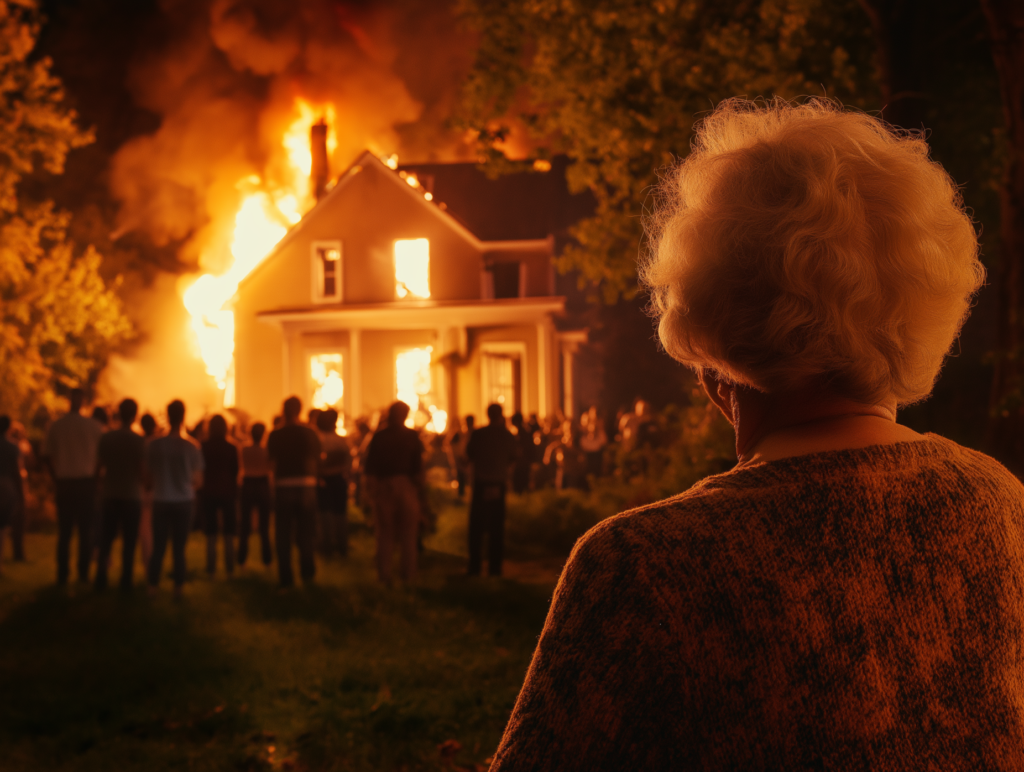
Neighbors gathered in the dark, faces lit by the blaze, voices rising in anxious clusters. The air was thick with the sharp scent of burning wood and wet ash. Magnolia watched in silence as firemen moved like shadows through the orange night, hoses snarling across lawns. Thankfully, the flames had consumed only memories and not lives.
By sunrise, the neighborhood was alive with speculation. Whispers moved quicker than the morning breeze. “It was those boys,” someone muttered at the market. “I saw them hanging around the empty place yesterday,” insisted another. Magnolia listened to the murmurs, lips pressed into a thin, unreadable line.

That afternoon, two police cruisers rolled slowly down the street. Officers moved door to door, asking questions, notebooks poised. Magnolia’s turn came and went—she answered politely, offering only what she knew. Down the block, the boys shifted nervously, eyes darting, but maintained their practiced bravado while adults scrutinized every glance.
The unease spread to the school the next day. Uniformed officers addressed the students in stiff voices, warning of arson’s consequences. Some boys feigned innocence with exaggerated shrugs, while others slouched deeper into their seats. Rumors buzzed like flies but soon faded into weary resignation—no one had seen enough, and nothing could be proven.
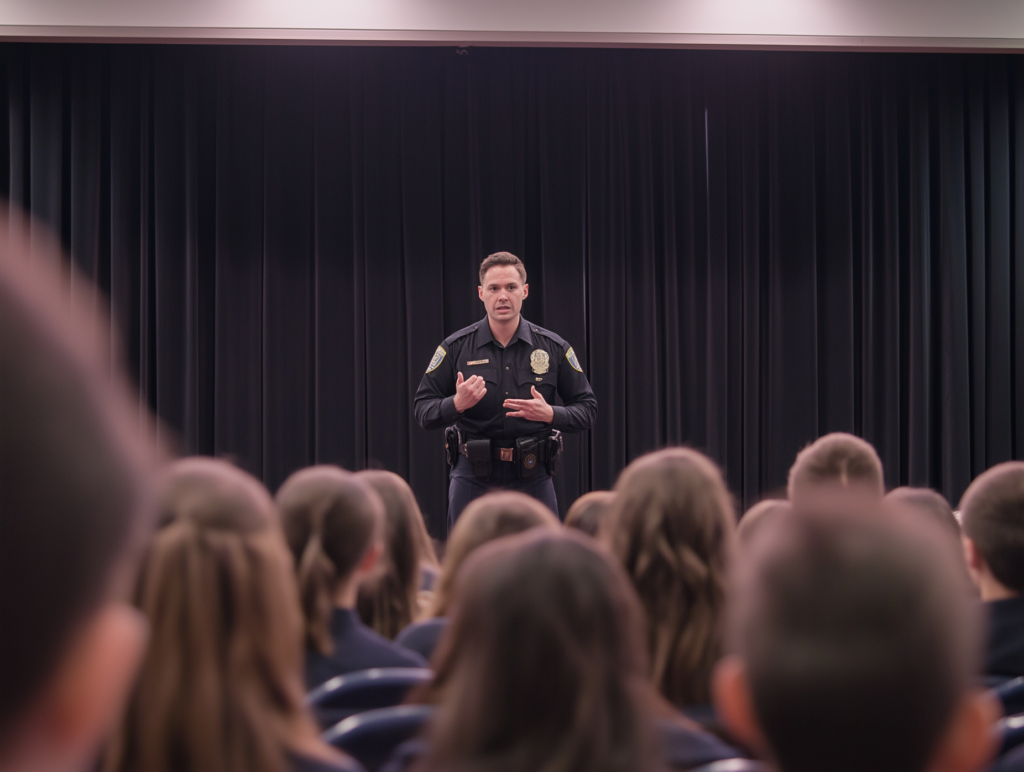
By the week’s end, the incident dissolved from urgent crisis into neighborhood memory. The charred house stood as a silent reminder, blackened and empty. Life resumed its patterns: routines returned, suspicions cooled. Magnolia swept her porch and watched from behind her blue eyes.
Connor began calling his little gang “The Nightcrows.” He ordered pranks filmed for their group’s online channel. The cul-de-sac became their favorite stage. The videos captured tulips trampled, a yanked trellis, and dark silhouettes sprinting past porches in the dark.
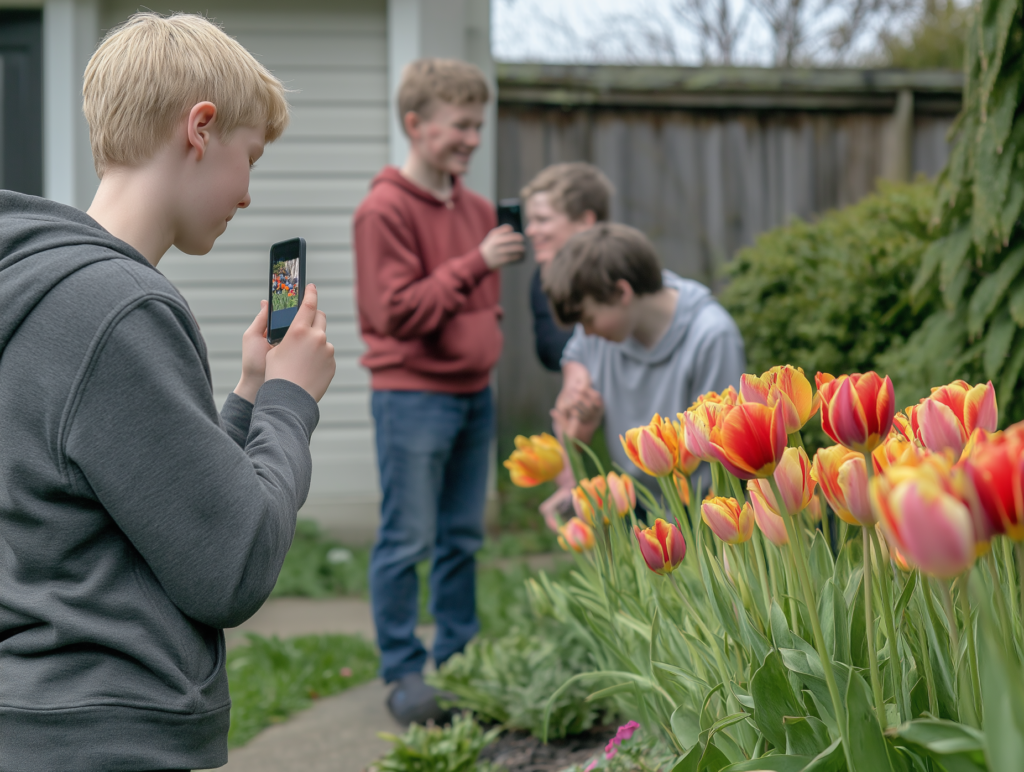
Though views for their anonymous channel increased, some comments criticized them for being unmindful of the people staying around them. But the boys only chuckled, happy that their antics were garnering them attention. Any attention was good attention, as far as they were concerned.
One evening, they uprooted Magnolia’s garden stakes, carefully rearranging them into ugly shapes across her lawn—angles forming crude symbols visible from the street. Magnolia discovered the spectacle at twilight, pausing only briefly before straightening each stake with steady hands. She hummed as she worked, curdling the boys’ laughter into unease.
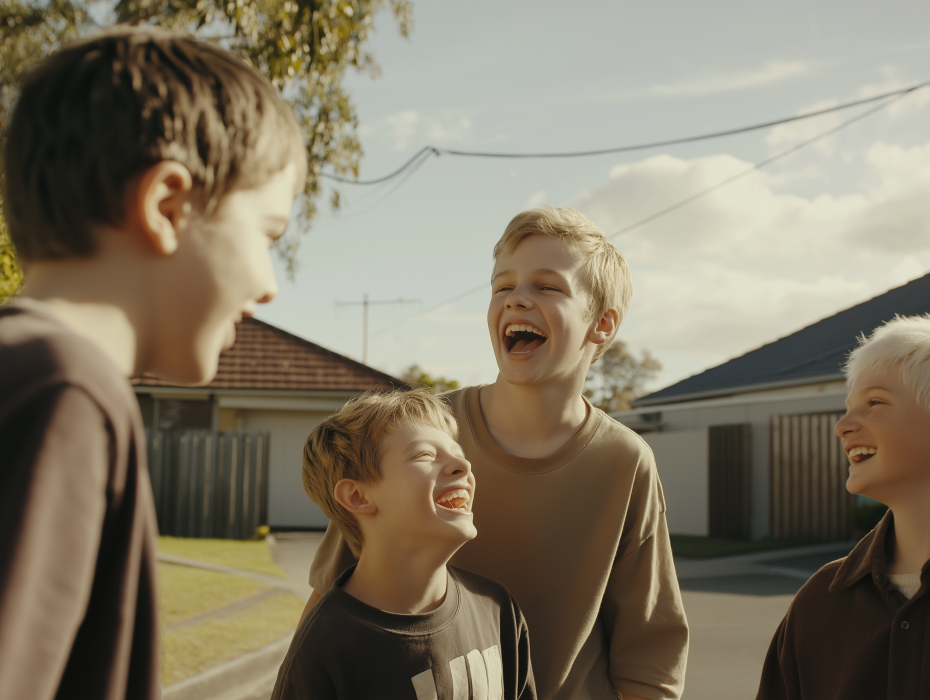
The boys pushed boundaries further. One day, she found them teasing a boy younger than them. At first, it seemed the boy was laughing and giggling along with them, and she turned away, planning to tackle the many tasks in her home that needed attention.
A little while later, though, she found that the mirth had evaporated. The boys were calling the little boy rude nicknames, and he was looking helpless and distressed. His tiny, crumpled face should have been the cue for them to stop, but the bullies continued. Just as she decided to intervene, the little boy took off running, tears streaming down his face.
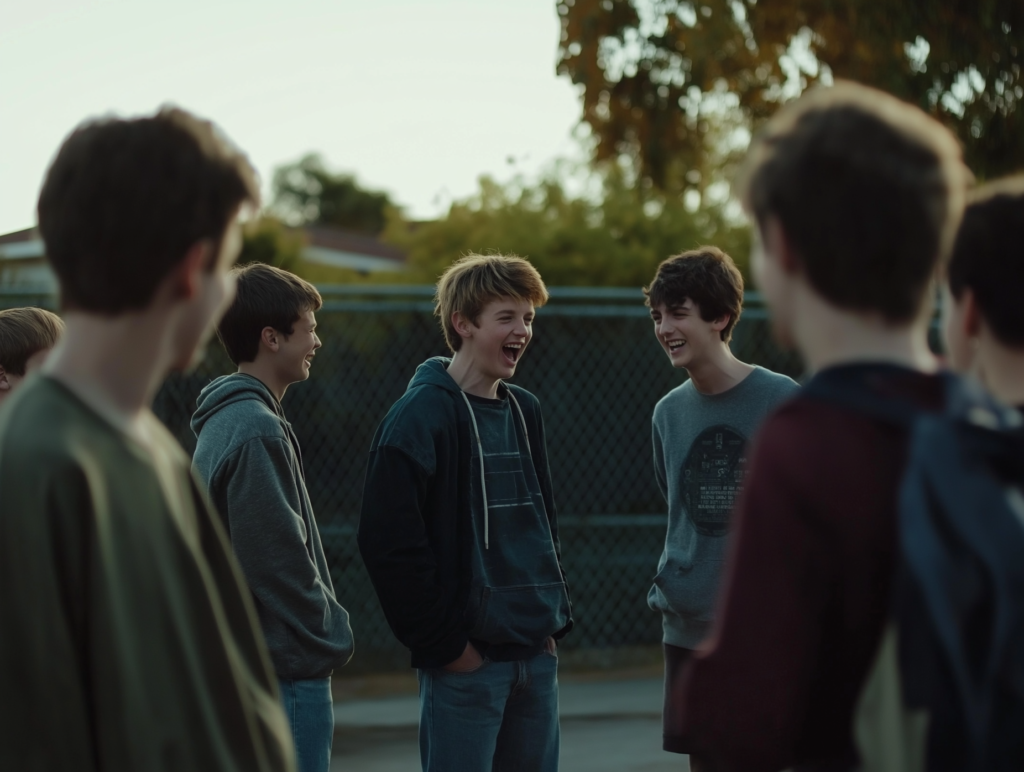
Magnolia watched for a while longer, just to make sure that none of the older boys followed him. Then she closed her window, deep in thought. Suddenly, it wasn’t just about herself anymore. She realized that if she let things be, these boys could cause a lot of harm in their attempts at “coolness”.
Magnolia kept a watch out for them. Trevor started noticing things that left him unsettled. He swore her eyes followed him, even when he was across the street. Another time, he caught a faint hum drifting from her window at midnight—low, and deliberate, like a lullaby that wasn’t tender at all. He slept poorly.

The group’s antics increased with boredom. They snared a stray cat, laughing nervously, threatening to toss it over Magnolia’s fence. One of the smaller boys refused, horrified. Connor sneered at his weakness. But as their jeering grew louder, Magnolia’s porch light flicked on. Instantly, they scattered, leaving the rope and the poor animal behind.
By now, some boys admitted that Magnolia unsettled them. Malik muttered, “She’s too calm. My nana would flip.” Connor brushed him off, but even he wasn’t immune. His chest tightened sometimes when he saw her rocking chair sway without wind. He told himself it was nothing— only an old woman’s creaky furniture.

The chorus of neighbors turned bitter. “She’s just letting them,” muttered Mrs. Phelps. “That’s why they’re getting worse.” Yet behind their whispers also lurked confusion, because the more charitable of them also admired the old woman’s patience.
The boys bragged of mastery, ruling the cul-de-sac like kings unchallenged. Yet doubts crept in like drafts, too. Trevor jolted once when he thought he saw old Mag’s curtain twitch late at night. One of the younger ones sometimes avoided the group now, muttering excuses, sensing their games had crossed lines best not crossed.
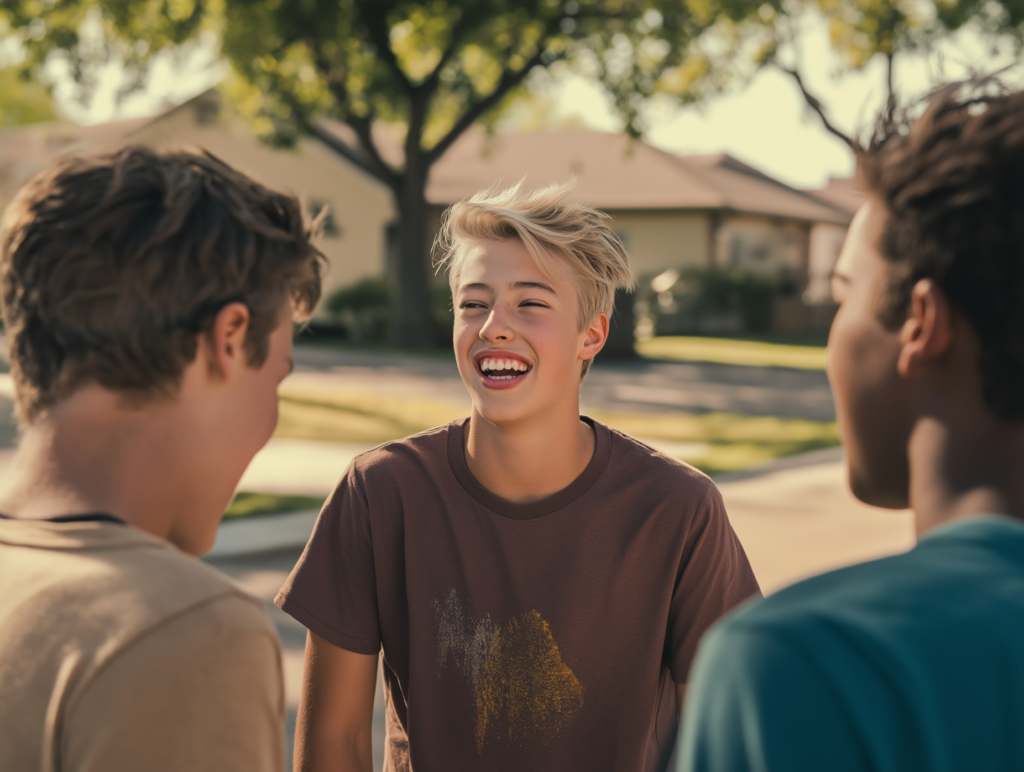
Still, Connor burned with pride. To him, dare-devilry was how you proved your bravery and worth. “Next time,” he said, “we’ll break into her place. What’s she going to do, knit us to death?” His laughter rang, thinly veiling his unease. Behind their swagger, no one admitted the thought of her parlor light unsettled them.
Rumors floated that Magnolia’s cooking had strange powers—an old superstition moms used to dissuade kids too keen on cinnamon buns. “She’s putting something in those pies,” one girl whispered. The boys sneered at talk of witches and curses, though secretly, late at night, some dreamt of sweet fragrances turning sickly.

Her silence became weaponlike, gnawing at them. Every insult bounced back as if into a void too vast to fill. They found themselves shouting louder, acting up, afraid of feeling small in her still presence. Day after day, they circled her house like restless birds over a silent field.
But through it all, Magnolia simply kept up her notes, baking, and humming songs at odd hours. The neighborhood leaned between pity and confusion. The teens sneered louder, but the laughter faltered quicker. Beneath it all, a steady mounting tension grew—like the still countdown to a thunderstorm.
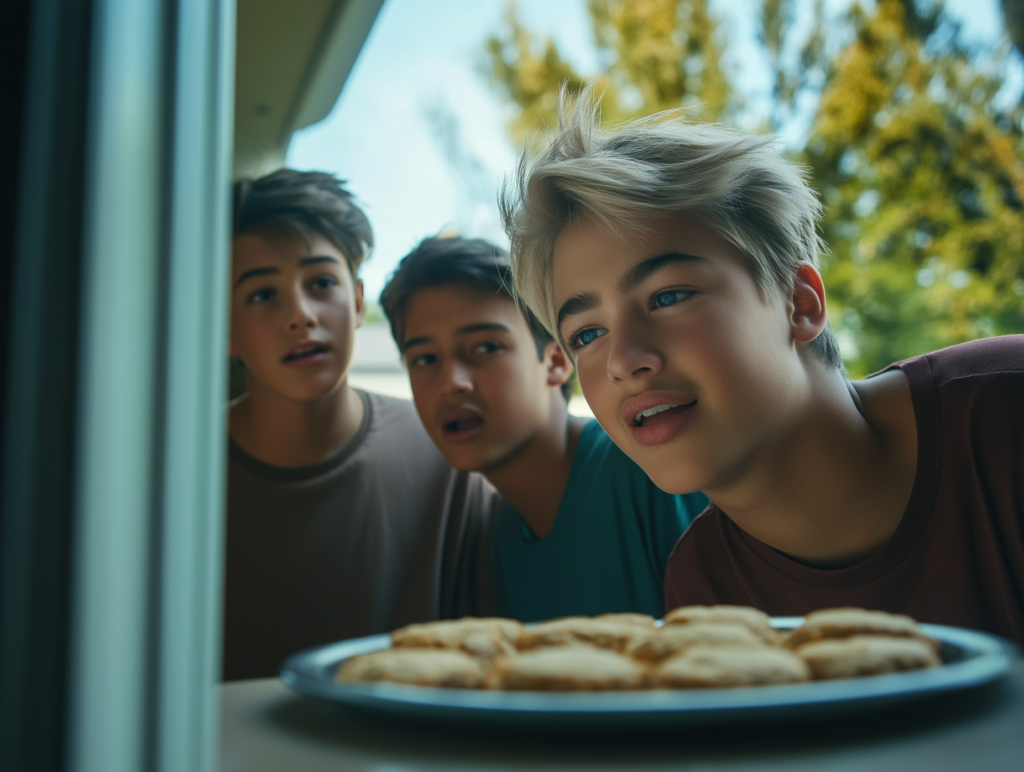
The breaking point came late one Saturday. Steam curled from Mag’s open window, drifting across the street like a siren’s song. The boys huddled nearby, watching as she slid a golden tray of cookies onto the wide sill. She turned away, humming, leaving them to tempt fate.
From inside, faint strains of humming floated, but were slowly replaced by a quiet snore. It seemed Magnolia had fallen asleep after her hard labor in the kitchen. The boys knew their golden chance had finally arrived.
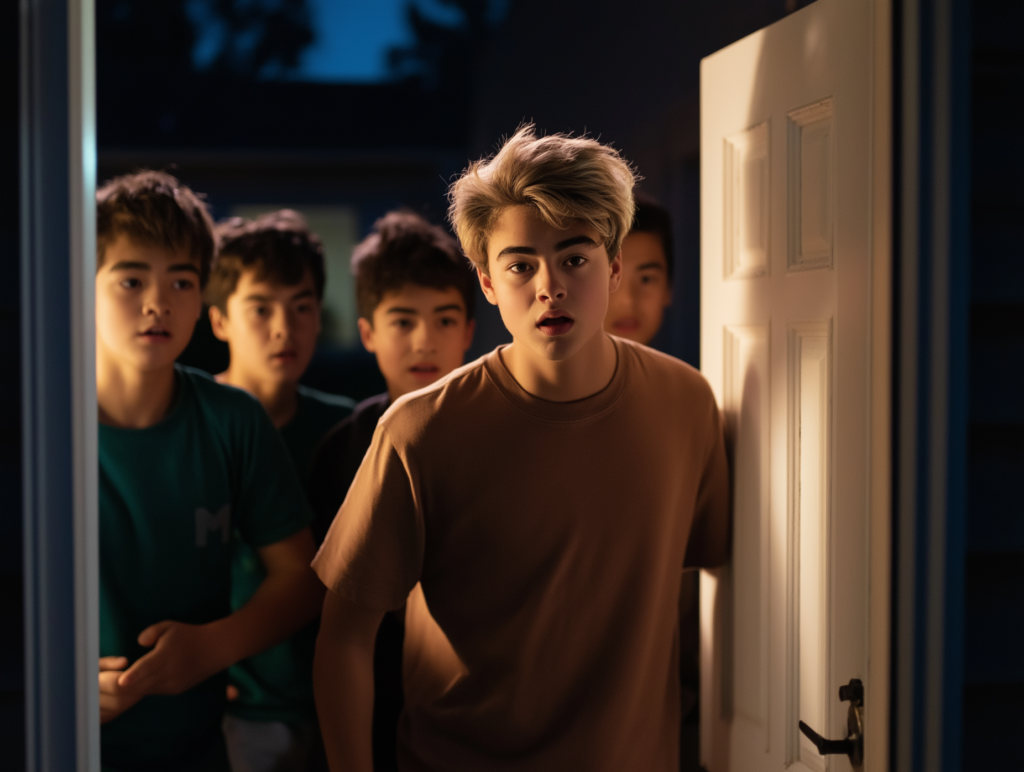
Connor’s grin gleamed dangerously. “There’s our trophy tonight,” he whispered, waving at the tray of cookies. Trevor, Malik, and the others shuffled nervously but followed. They crept through the squealing gate—ajar as on many days—and padded up the porch steps.
They hesitated only a moment before Connor shoved the screen open and led them. Inside, the house smelled of butter and something sweetly strong enough to cloud judgment. Hearts hammered as they slipped through the tidy parlor, past lace curtains, straight toward the kitchen. The tray of cookies glistened like treasure.
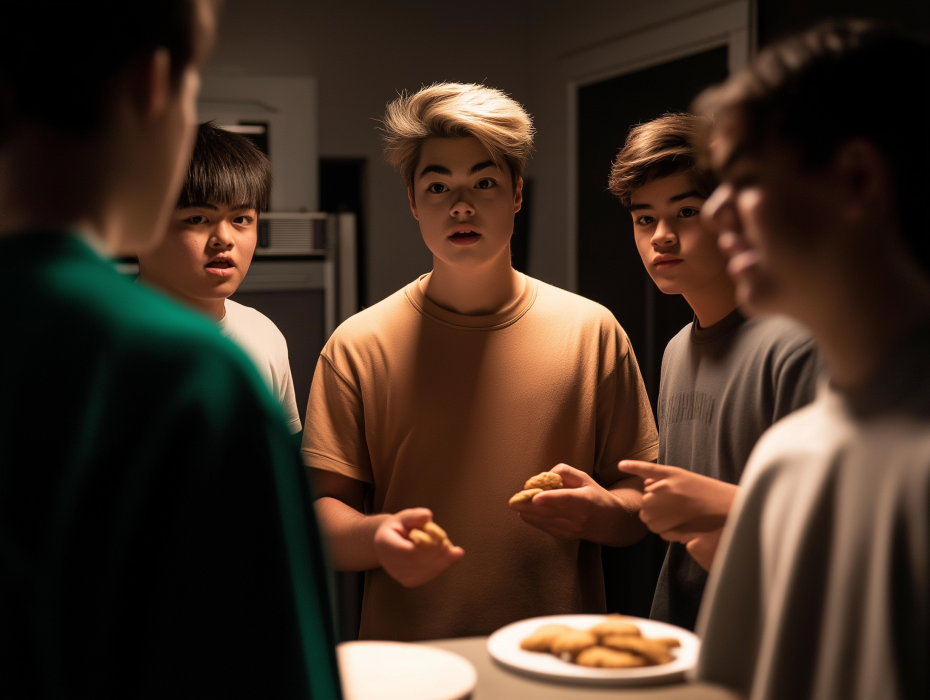
They snatched handfuls, biting greedily, crumbs fluttering down their shirts. Trevor laughed, cheeks stuffed like a chipmunk. Malik muttered, “We shouldn’t,” even as his hand reached for a second. The taste was divine—golden, soft, sugared heaven. Triumph buzzed in them. At last, Mag’s treasure was theirs.
Or so they thought, as they tumbled out into the night, whooping with relief. Connor tossed crumbs skyward like confetti. “Victory!” he shouted. The crew echoed him, ignoring how Magnolia’s lamp still glowed in the parlor window. She rocked silently in her chair, needles clicking rhythmically, lips curled in calm amusement.

Morning at school brimmed with swagger. The boys strutted through the halls, nudging each other, recounting dramatized tales of sneaking into her kitchen. Desks rattled under their boots as they laughed. “Best cookies ever,” Trevor bragged, pounding his chest. But midway through algebra, something in his stomach turned uneasy.
At first, he thought it was nerves or maybe bad cafeteria milk. His pencil slipped. A bead of sweat broke across his forehead. Connor rolled his eyes at his dramatics until, minutes later, Malik followed suit. Desks squeaked as two boys bolted for the hallway bathrooms.

By lunch, three more followed. The cafeteria echoed with laughter as one by one, the Nightcrows doubled over, clenching their midsections, and sprinting awkwardly toward the stalls. Their once-invincible swagger dissolved into frantic shuffling runs. Someone shouted, “Looks like the Nightcrows have really learned to fly—to the loo!” Phones were whipped out gleefully.
Videos flooded social media before the bell rang. Several reels showed the boys breaking into a sausage-legged sprint, expressions tortured, and barely holding disaster at bay. Caption after caption made them the butt of jokes. Even the teachers smirked behind their coffee cups. The school turned into a symphony of chuckles and bathroom door slams.

By the time English class began, Connor sat alone at his desk, glaring fiercely around him as though daring anyone to laugh. His crew was defeated, vanishing in groups toward the boys’ room. A faint churning in his gut worried him, too, but his pride kept him stubbornly chairbound.
On the bus ride home, the survivors groaned loudly. Trevor sat pressed against the window, pale and defeated. Malik muttered oaths never to eat again. Others looked shaken, lips clamped tight as they breathed shallow. Their classmates snapped more videos, sharing them with captions like “The Nightcrows will soon need diapers.”

By evening, the neighborhood buzzed with stories. Children reenacted bathroom sprints on front lawns, and neighbors exchanged chuckles. “Those hooligans finally got what they deserved,” Mr. Jensen laughed. Mrs. Phelps declared with glee, “Serves them right.” Meanwhile, Magnolia weeded her garden bed, humming softly, serene.
The boys gathered the next afternoon beneath their old hangout tree, humbled and whimpering. For once, Connor had to rally them. He scowled, “We should ask her, prove our worth!” Trevor was unconvinced, clutching his stomach like a war wound. Malik muttered, “Well, we stole her cookies, you know…”
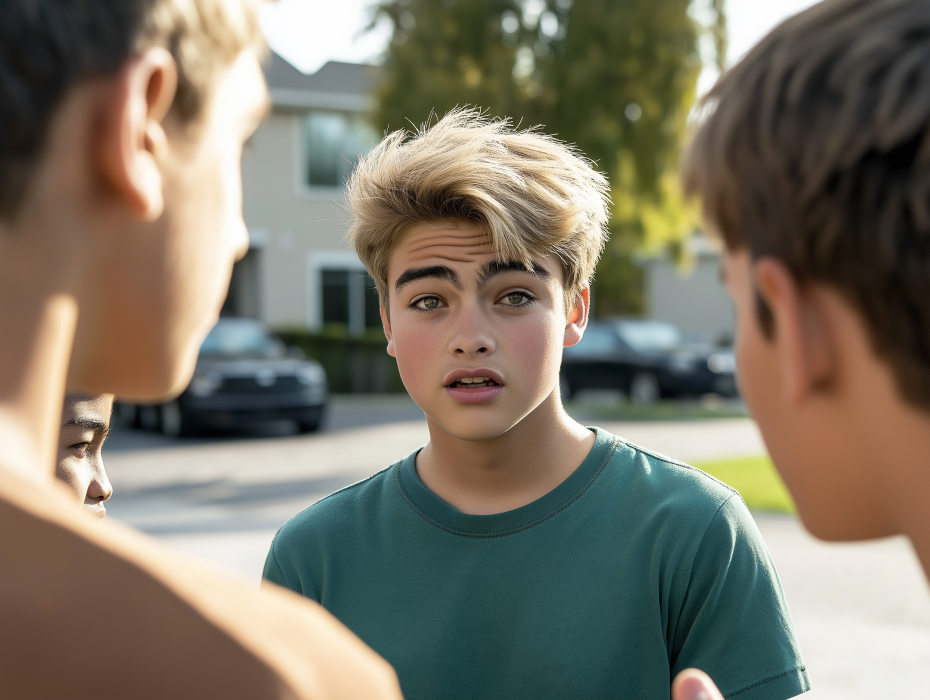
Furious at their timidity, Connor marched alone up Magnolia’s path. He rehearsed insults in his head, anger rumbling over yesterday’s humiliation. She was on her porch, as always, rocking chair creaking under the weight of time. A basket of folded linens sat at her feet. She looked harmless as clouds.
Connor straightened his shoulders. “What’d you put in those cookies?” he demanded. His voice cracked halfway, but he pushed louder. “Some powder or something? Was this your trick, huh?” Behind him, the gate wobbled in the wind. His friends hovered afar, watching like reluctant witnesses.
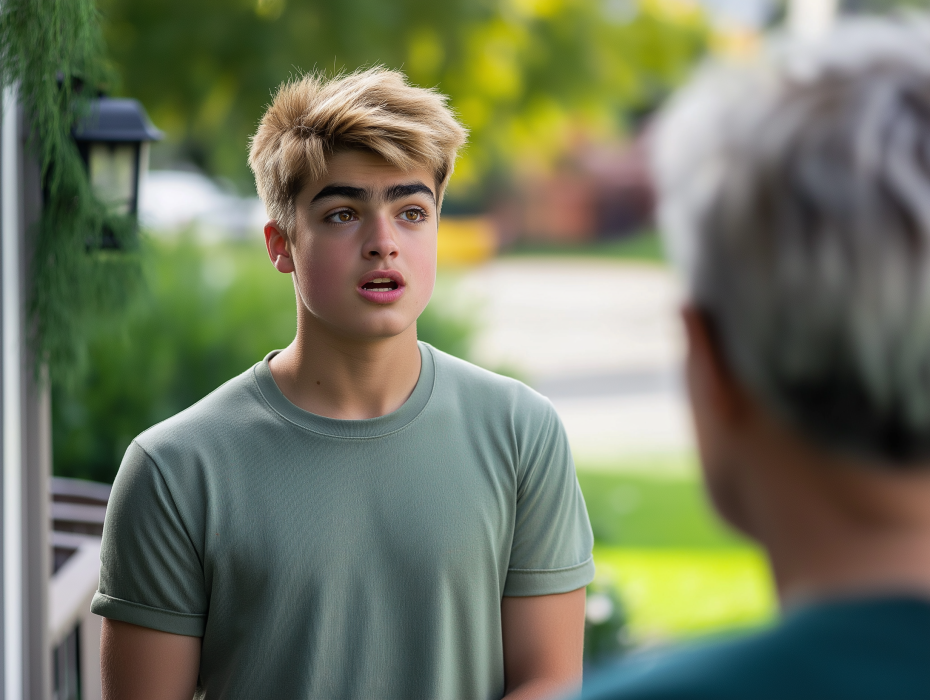
Magnolia tilted her head, lips curving into the faintest of smiles. Her blue eyes blinked once, as her voice, gentle as chamomile, said, “Oh! Were you the ones who took my cookies? I had baked them for Mrs. Jennings’ old dog. If you had asked me, I would’ve made proper ones for you lot.” She returned her gaze to her knitting, needles clacking with unhurried certainty.
Connor froze, entirely unprepared for such simple words. No scolding, no angry threat—just the sledgehammer blow of complete serenity. He stammered for a retort, but nothing came. That calm unraveled his bluster better than any punishment ever could. Her rocking chair continued creaking, the sound replacing any answer he could have given.

The others dragged him away eventually. They didn’t dare look back at the porch. Something about the stillness of her presence unnerved them more than all their pranks combined. For days afterward, the neighborhood kids pointed and snickered whenever the Nightcrows passed, clutching their stomachs in unison.
The swagger that once ruled Magnolia’s street dissolved, the boys trailing with hunched shoulders. Their gang—which had thrived on laughter at others’ expense—became the greatest punchline. Videos earned them ridicule. Erasing the online posts didn’t work. Their legacy had been rewritten in shame.
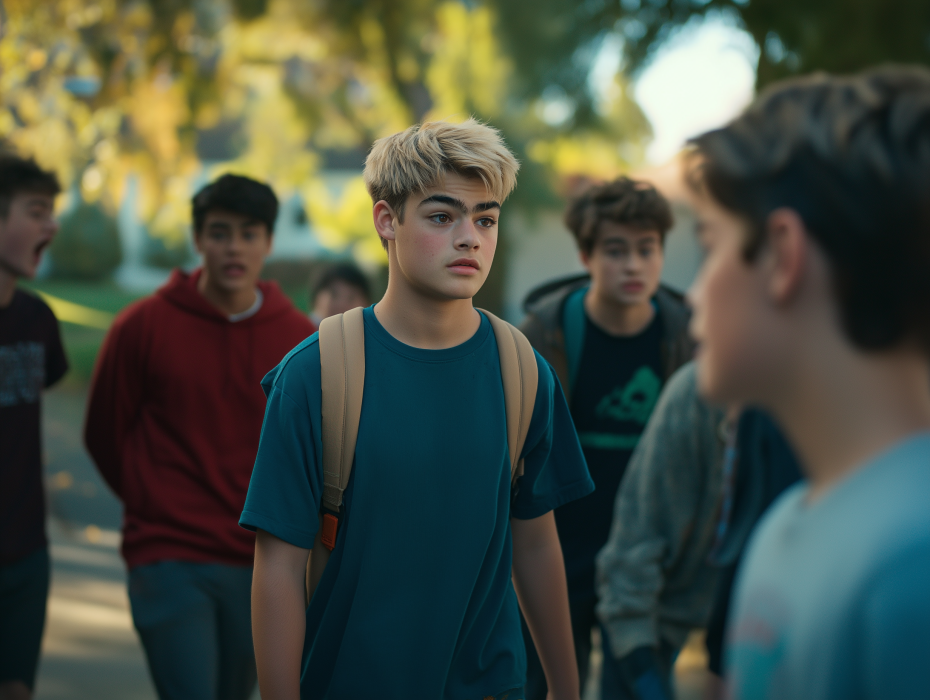
Meanwhile, Magnolia Wren tended her roses, pies cooling on the sill, humming just loud enough to carry across the street. Neighbors waved brighter now. She waved back with the same soft smile. The revenge she’d baked had taken long in coming—but it was the sweetest!
